The world of design and digital marketing is rapidly evolving in a digital world where we are increasingly digital era technologies like artificial intelligence or augmented reality has revolutionizing the way that brands connect with their audiences, while consumers continue to seek out, demanding personalized, engaging, and seamless experiences. In a rapidly changing world, staying on top of emerging trends cannot be optional but a necessity for brands and creatives looking to remain competitive.
At Yeti, we seek to help brands navigate the changing landscape by using design advancements and digital marketing strategies. From innovative visual design to data-driven marketing, automation and SEO strategies aligned with changing search engine algorithms, this article outlines the key trends that will be top-of-mind in 2025. No matter if you are a marketer, designer, or business owner, you will be better positioned to develop strategies that have impact, are innovative, and have measurable outcomes if you are aware of these several trends being developed in the design and marketing community.
Table of Contents
1. AI Design Tools That Boost Efficiency
2. Immersive User Experience (UX) and Interactive Design That Captivates
3. Data-Driven SEO Strategies
4. Personalized and Automated Digital Marketing
5. Cross-Channel Marketing & Omnichannel Experiences
1. AI Design Tools That Boost Efficiency
In 2025, artificial intelligence in design is not just a trend—it’s a transformative force.Notably, AI is reshaping how creative teams work, enabling smarter workflows, faster production, and more personalized digital experiences.
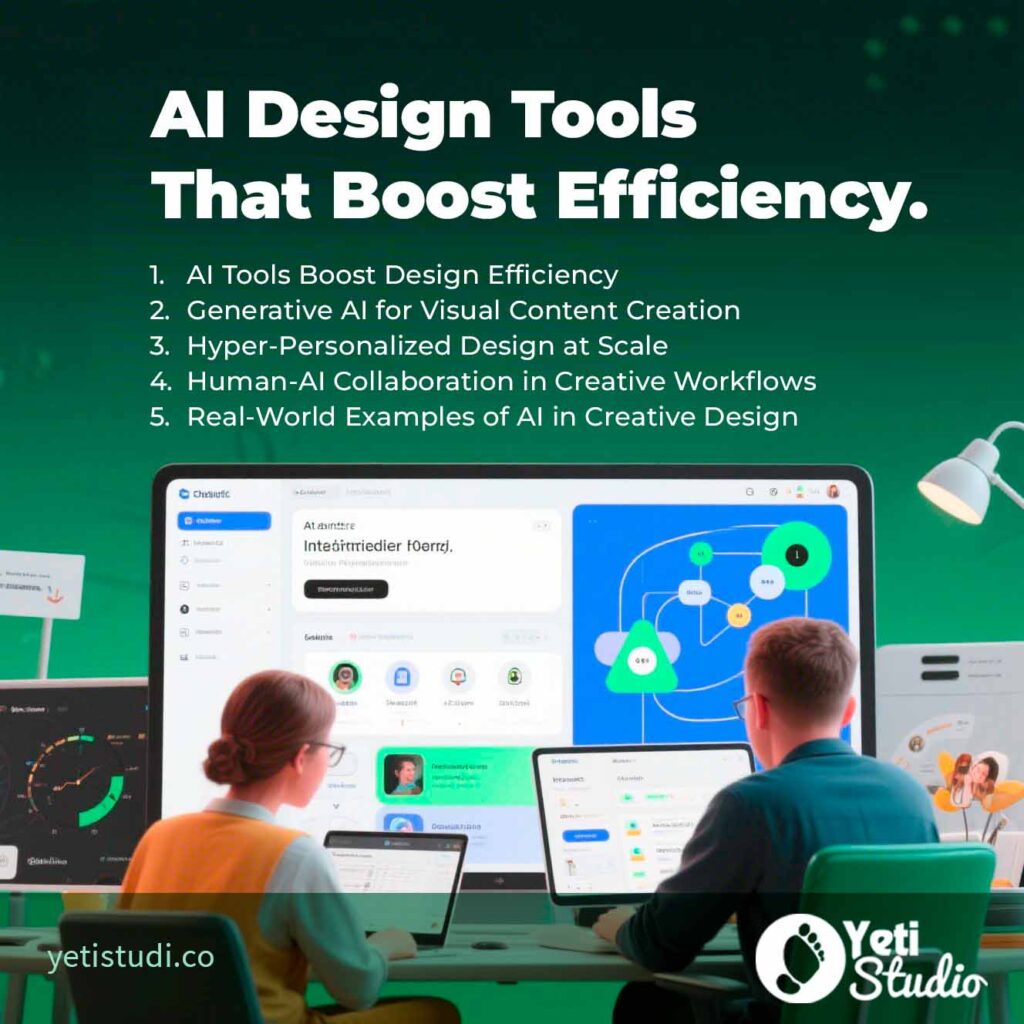
Figure: AI Design Tools That Boost Efficiency
AI Tools Boost Design Efficiency
AI-powered platforms like Adobe Sensei, Canva, and Figma automate repetitive design tasks such as image resizing, layout adjustments, and color matching. As a result, these tools free up time, allowing designers to focus on strategy and high-impact creative thinking.
Generative AI for Visual Content Creation
Innovative tools like Midjourney and DALL·E uses generative AI to produce unique, high-quality visuals from text prompts.This not only accelerates content creation and empowers designers to explore creative concepts that go beyond conventional boundaries.
Hyper-Personalized Design at Scale
With access to real-time data, AI enables personalized marketing content—custom visuals, emails, and landing pages tailored to individual user behavior, preferences, and location. Consequently, this enhances engagement and delivers more relevant brand experiences.
Human-AI Collaboration in Creative Workflows
Rather than replacing designers, AI enhances collaboration by supporting ideation, automating production, and offering data-driven design insights. The result? Smarter, faster, and more effective content creation across marketing campaigns.
Real-World Examples of AI in Creative Design
Companies like Spotify use AI to personalize playlist covers, while Netflix leverages AI to dynamically adapt visual content based on user preferences—demonstrating how AI is already elevating digital creativity.
2. Immersive User Experience (UX) and Interactive Design That Captivates
Meanwhile, as digital platforms grow more crowded and attention spans shorten, brands in 2025 must rely on immersive, interactive user experiences to stand out and retain engagement.
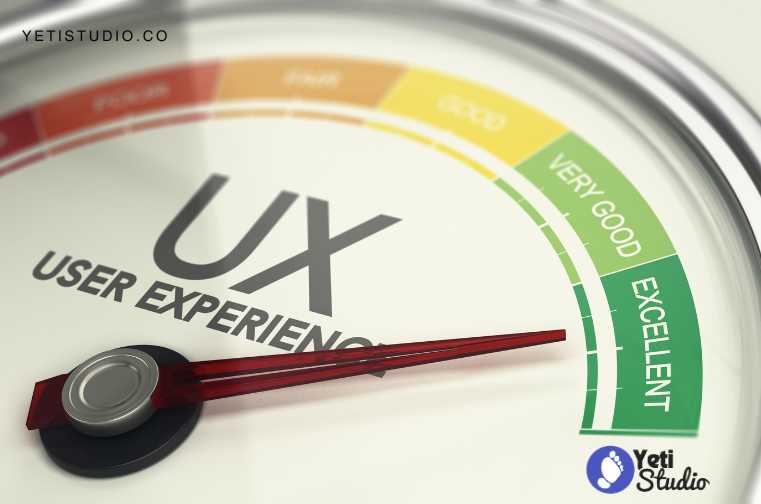
Figure: Immersive User Experience(UX)
Augmented & Virtual Reality (AR/VR)
AR and VR are now central to product demos and virtual shopping. Likewise, brands like IKEA and Sephora use AR for “try-before-you-buy” experiences, while others create immersive 3D showrooms and walkthroughs.
Micro-Interactions
Small animations—like button bounces or hover effects—deliver instant feedback and delight users.These subtle features, they guide behavior, confirm actions, and enhance navigation subtly but effectively.
Voice & Gesture Interfaces
With smart devices on the rise, voice search and gesture-based navigation are becoming standard, especially in mobile-first and accessibility-driven UX design.
3D Design & Motion Graphics
3D visuals and motion graphics are making websites more dynamic and engaging. Expect more 3D product previews, interactive hero sections, and fluid animations to become the norm.
User-Centered, Data-Informed Design
Instead, successful UX in 2025 goes beyond aesthetics. It’s built on user data, allowing for personalized navigation, predictive interfaces, and seamless digital journeys.
3. Data-Driven SEO Strategies
SEO in 2025 goes beyond keywords—it’s about AI, smart data, and user intent. Ranking well means adapting quickly to algorithm changes and delivering content that meets real-time user needs.
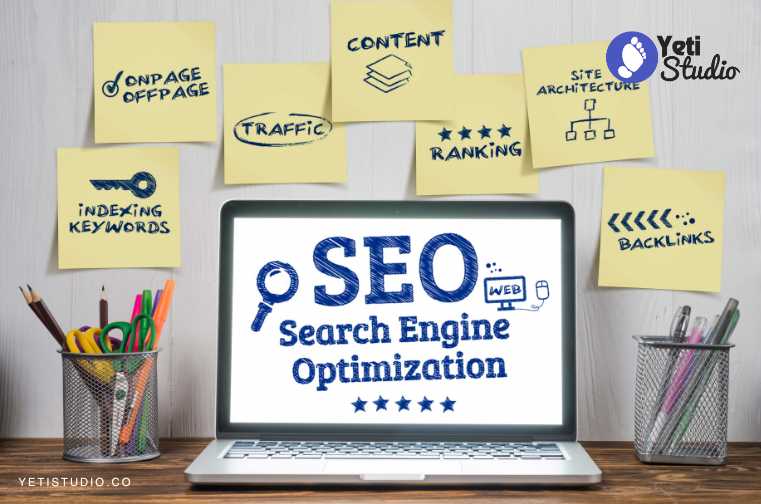
Figure: Data-Driven SEO Strategies
AI-Driven Keyword Research
Thus, AI tools now analyze trends and generate high-converting, intent-based long-tail keywords, removing guesswork from targeting the right audience.
Intent-Focused & Semantic SEO
Consequently, Google ranks content based on user intent, not just keywords. Optimizing for informational, transactional, or navigational queries ensures better visibility.
Predictive SEO with Analytics
AI uses historical data to forecast keyword trends, helping brands publish content before demand spikes—giving them a competitive edge.
Core Web Vitals & UX
Page speed, mobile usability, and interactivity now directly impact SEO rankings. In short, user experience, especially on mobile, is a critical ranking factor.
Structured Data & Snippets
“Using schema markup increases the chances of appearing in rich results like FAQs and product previews. As a result, it helps improve visibility and click-through rates
4. Personalized and Automated Digital Marketing
Digital marketing in 2025 will be fully automated and hyper-personalized, driven by AI and data to boost engagement and conversions across every customer touchpoint.
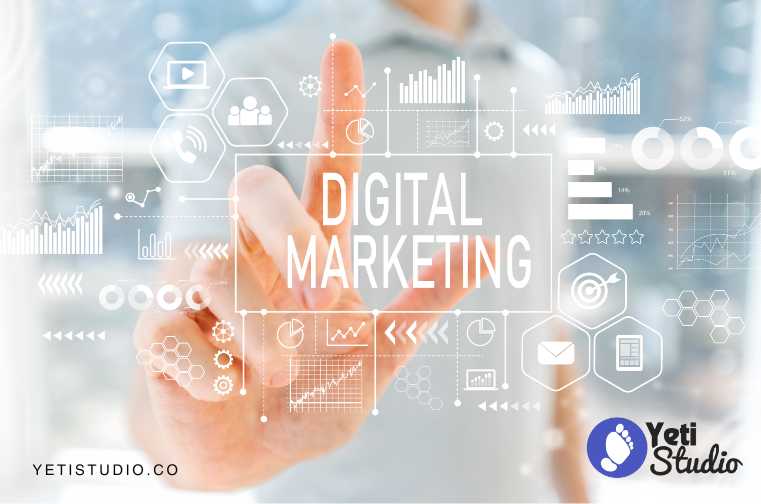
Figure: Personalized and Automated Digital Marketing
Dynamic Content Personalization:
AI crafts unique content like emails, ads, and product recommendations based on real-time user data, ensuring no two experiences are alike.
Marketing Automation Platforms
Tools like HubSpot and Mailchimp automate workflows across channels, saving time and increasing ROI.
Omnichannel Campaigns
Moreover, seamless personalization spans email, social, web, and mobile for a consistent brand experience.
Behavior-Based Targeting
Automated responses triggered by user actions like clicks and time spent enhance conversion opportunities.
AI-Powered A/B Testing
Therefore, AI rapidly tests and identifies winning headlines, images, and CTAs to optimize marketing quickly and efficiently.
5. Cross-Channel Marketing & Omnichannel Experiences
Providing a seamless brand experience across multiple platforms will be a key competitive advantage in 2025.
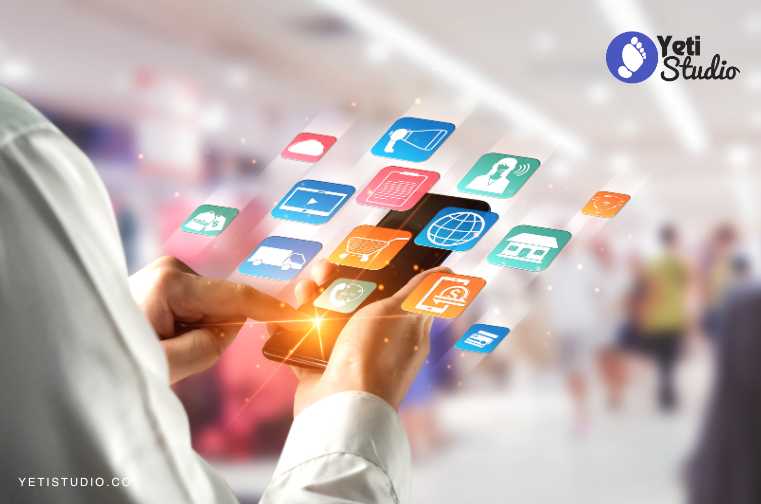
Figure: Cross-Channel Marketing & Omnichannel Experiences
Unified Customer Journey
Connecting email, social, web, and mobile creates trust and loyalty through consistent experiences.
Data-Driven Messaging
Real-time consumer data across channels enables highly relevant, adaptable messaging.
SEO Boost
An omnichannel approach improves SEO with longer engagement and lower bounce rates—signals Google values.
Integrated Analytics: Unlock Deeper Customer Insights
Cross-channel data sharpens SEO and marketing by revealing deeper customer intent.
Higher Conversions
Ultimately, personalized, timely interactions on the right channel drive more conversions and customer value.
Conclusion
As we enter 2025, leading brands will rely on AI-driven storytelling, immersive experiences, data-powered SEO, and personalized marketing. Only brands that embrace innovation across channels, success comes from creating seamless cross-channel journeys that build lasting customer loyalty.
At Yeti Studio, we combine smart design with data-led marketing to deliver impactful, measurable results that connect with today’s digital audiences and help your business stand out in a crowded market.
In this fast-evolving landscape, In a world that moves fast, brands must not only keep up but lead the digital revolution through innovation.
Also, visit the following pages you may like:
Digital Marketing: In Adding Value To Your Business
Best Digital Marketing Trends for 2025 In Nepal
The Best Digital Marketing Agency In Nepal: YetiStudio
Environmental Sustainability: Digital Innovation For A Greener World
Mobile Number: 977-9808271089 (WhatsApp)
Email Address: info@yetistudio.co
Address: Baraha Marg, Dhumbarahi, Kathmandu, Nepal






 using WordPress and
using WordPress and
Comments are closed